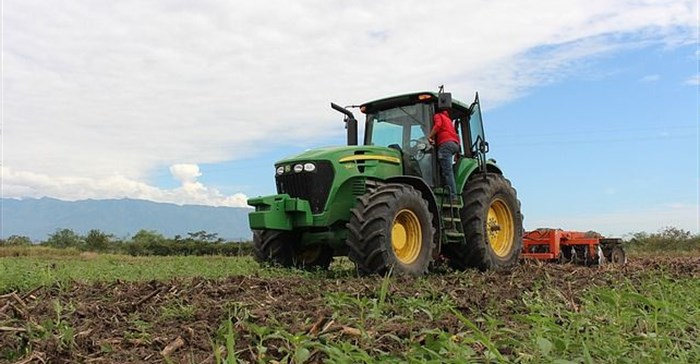
Top stories






More news














The recent Agbiz- Industrial Development Corporation Agribusiness Confidence Index results for the second quarter of 2017 underlined agriculture's reputation as a countercyclical sector. The index declined marginally to 56 points, indicating that the agribusiness sector remains in expansionary territory. This is the fourth consecutive expansionary reading, showing continued stabilisation following the 2015-16 drought damage.
Among other things, the index projects how agricultural GDP could perform in the succeeding quarters. Broadly, the index covers the 10 most important aspects influencing business activity in the agricultural sector - turnover, net operating income, market share, employment, capital investment, export volumes, economic growth, general agricultural conditions, debtor-provision for bad debt and financing costs.
The index shows that capital investment, market share, employment, the volume of exports and debtor provision for bad debt subindices were the key underlying drivers of the sustained confidence in the second quarter of 2017. The general improvement is largely in line with the robust recovery in agricultural production, particularly in summer grains and oilseeds.
The decline in other subindices mirror the tail-end effects of the drought, particularly in businesses operating in the horticulture, wine and insurance industries.
Agribusinesses' confidence regarding capital investment improved by six points from the previous quarter to 62, indicating that the farming community continues to invest in agricultural equipment such as tractors and combine harvesters. The most recent data indicates that tractor sales reached 493 units in May - a 24% monthly uptick and 17% higher than the corresponding period in 2016.
The perception in the market share of the business subindex improved by two index points from the previous quarter to 68. These results reflect the potential benefits of the 2017 summer rainfall, particularly for certain grain operating businesses that recently delivered maize to silos with relatively higher moisture levels.
The subindex for employment reached 59 points in the second quarter of 2017, up from 56. This suggests an improved expectation of seasonal employment as some horticulture and summer crop farms begin the harvest period, which requires more labour. In the first quarter, the sector shed 44,000 jobs, reducing its total labour force to 875,000 jobs.
Confidence in the export volumes subindex improved by three index points from the previous quarter to 58. This is on expected large grain and oilseed supplies.
The 2017 summer grain and oilseed production levels are set to reach 18.03-million tonnes - a 92% annual increase. Favourable conditions in some citrus-growing areas also suggest that there could be good export activity.
Agribusinesses are hopeful that the provision for bad debt might decline in the second quarter following expected large harvests in most areas of SA. The debtor provision for bad debt subindex eased to 38 points from 39 in the previous quarter.
While each of the subindices is supported by its unique drivers, the key underlying factor behind this sustained optimism is the improvement in weather conditions, particularly the summer rainfall's positive effect on crops. This optimism is weather dependent. Fortunately, the most recent updates suggest that the fears of another El Niño weather phenomenon have eased. Data from the Australian Bureau of Meteorology show that the next summer season could be neutral and there may not be another drought, as feared.
But it is not all rosy in the agricultural sector. The persistent insecurity stemming from possible "land expropriation without compensation" poses a risk of undermining the critical contribution of agriculture to the economy.
The agricultural sector needs to maintain a delicate system of confidence that is not just supported by rain but also by land tenure, investment and market-friendly policies.
Sihlobo is head of economic and agribusiness research at the Agricultural Business Chamber.
Source: Business Day

For more than two decades, I-Net Bridge has been one of South Africa’s preferred electronic providers of innovative solutions, data of the highest calibre, reliable platforms and excellent supporting systems. Our products include workstations, web applications and data feeds packaged with in-depth news and powerful analytical tools empowering clients to make meaningful decisions.
We pride ourselves on our wide variety of in-house skills, encompassing multiple platforms and applications. These skills enable us to not only function as a first class facility, but also design, implement and support all our client needs at a level that confirms I-Net Bridge a leader in its field.
Go to: http://www.inet.co.za